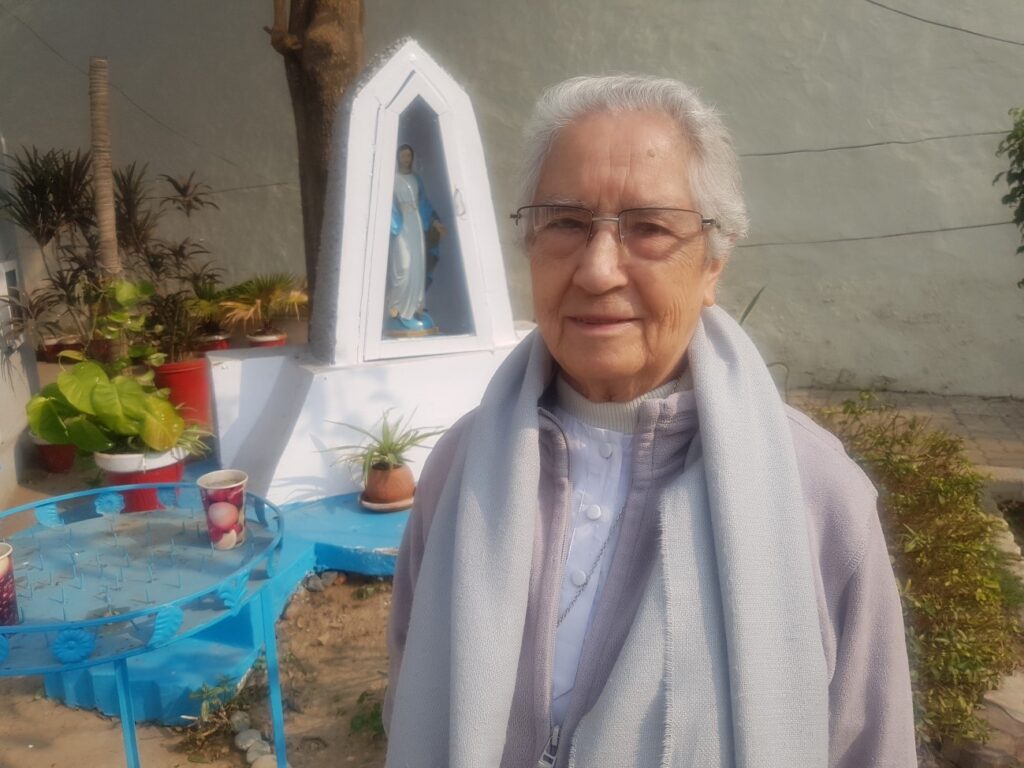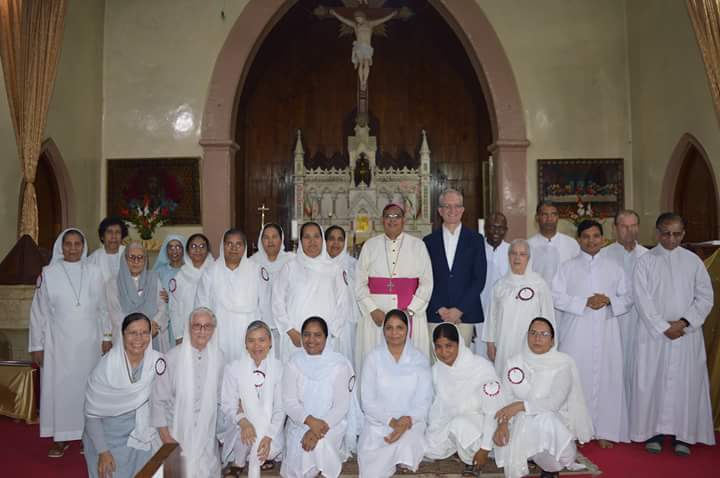My missionary vocation and my dedication to the Lord grew together and were sealed with my entrance into the Franciscan Missionaries of Mary on December 8, 1952.
In 1960, I was designated to go on mission to Burma, now Myanmar. It was a great joy for me. My destination was Kemandire-Rangoon, where we had a leprosarium with 500 patients and a hospital for incurable patients with 220 patients. That’s where I was sent.
Most of the patients had no family or friends, as almost all of them came from China or India. It was a great experience for me. Instead of medicine, these patients needed love, dedication, and prayer. Only a few were Christians.
At that time, we thought our destination would be forever, but the Lord had other plans. With great pain, we had to leave the patients. From 1966 onwards, the government did not grant visas to any missionaries who arrived after the country’s independence in 1948. It was tough because almost all the missionaries were in that group.
In 1968, I was sent to Pakistan to work in a hospital for incurable patients that had opened its doors 4 years ago, founded by the Irish priest Francis O’Leary and our sister Maria Dolores de la Peña. It was a hospital-hospice for the poor and incurable. They started with 50 patients and later opened a section for children with a capacity for 30, many of whom were poor and incurable with various disabilities. At that time, many had become paralyzed due to polio. Today there are fewer affected, but there are still those who suffer from the disease because although the vaccine is mandatory, families are afraid and do not allow their children to receive it.
Most of this population was Muslim. We never asked them about their religion, we accepted them knowing that they were poor. Many died without anyone asking about them. We never had problems because of religion. We always celebrated their festivals and they celebrated ours.
The beginnings were difficult because we had no money, but the Lord helped us in a thousand ways. Sometimes the sister in charge would arrive saying that there was nothing to eat for the patients the next day, but at that moment a bell would ring and a couple would arrive with their car full of food. Other times (and this happened many times) a patient needed socks (which were expensive and there were none), but shortly afterwards a lady would show up with a package of socks she had spare, exactly what the patient needed. These are not isolated cases, the days went like this. There was a group of ladies, mostly wives of diplomats, who wanted to help and did so in a thousand ways. We spent many moments in the chapel with the Lord thanking Him.
For me, it was a very enriching experience to live there all these years. Our prayer was constantly one of gratitude. He never let go of our hand and we never lacked anything. We spent many moments together with the Lord thanking Him for His generosity and love.
Today, the hospital is still the same, but we had to leave it in the hands of other nuns due to the lack of sufficient nurses. In addition, we had a clinic for patients with any disease, who came daily to the dispensary where a doctor examined them and prescribed medication. These patients paid what they could, and many of them could not. Every day we treated between 100 and 150 patients. How can we not thank and offer, at the end of the day, everything that the Lord had done through us? Our common prayer, most of the time, was one of gratitude.
All my time was for the Lord, out of love. My mission belongs to the Lord. Now that I have had to leave it, it is not over. In my prayer, I will always be grateful for it.
Pilar Uribarrena f.m.m.


